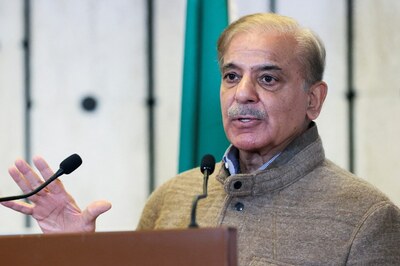
views
Almost every Indian has a suggestion on how to eliminate corruption in India. This could simply be because of the sheer number of corrupt people we meet. This year India ranked 84 on Transparency International’s 2009 corruption index. Some experts believe improving the way our babus are paid will drastically reduce corruption. But will this work in India?
“There is anecdotal evidence to suggest that [tweaking] compensation structures can reduce corruption,” says Ajay Subramanian, Bruce A Palmer Associate Professor, Georgia State University, Atlanta. He and Rajesh Chakrabarti, assistant professor of finance, Indian School of Business, wrote a research paper titled “Compensation, Inequality and Corruption”. They argue that paying high-ranking officials disproportionately more than lower ranking ones will clean up the entire system.
Chakrabarti gives the example of Singapore, one of the world’s least corrupt countries. According to the Transparency International’s rankings, Singapore ranked third with an integrity score of 9.2. “The Singapore president is paid way higher than the American president,” he says. “The logic is that if you make the top job so lucrative money-wise, the person fears being labelled as corrupt and has an incentive to fight corruption in the system.”
But this is a system that meets with some scepticism. All the guys on Wall Street were paid very highly but that didn’t deter them from being dishonest. Besides, countries like Philippines, South Korea and Thailand have examined the Singapore model, but haven’t adopted it.
There has been disbelief in India as well. Some years ago former Planning Commission member Y K Alagh chaired a committee on recruitment and training of civil servants. When they looked at the issue of corruption, they did examine the Singapore model carefully, but were not convinced about its suitability. “We realised that India is a nation which is still in the building stage. There are security problems here -- for instance, in 150 districts, the state still means the collector and the superintendent of police. So we thought that it is too premature to marketise the civil service -- which is really what the Singapore model is based on,” says Alagh.
Management guru C K Prahalad thinks that one way to combat corruption using compensation is to introduce performance-based variable pay. “I have no problem if you pay bureaucrats to perform their tasks on a timely fashion up to world-class levels,” says Prahalad. But at the end of the day, performance in every government job is not quantifiable. But there are some -- like building roads -- that are. “Let us start with places where it can be quantified. Where inputs are measurable, outputs are measurable,” says Prahalad. He is of the opinion that both the carrot and the stick must be used together. So if there is a reward for good performance, there has to be penalty for bad.
This then, could be the golden mean.




















Comments
0 comment